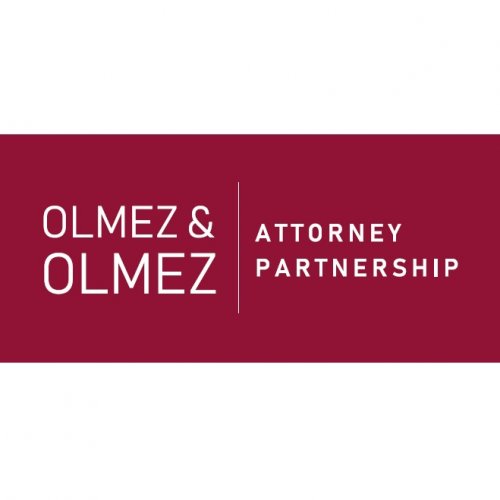Best International Trade Law Lawyers in Istanbul
Share your needs with us, get contacted by law firms.
Free. Takes 2 min.
List of the best lawyers in Istanbul, Turkey
About International Trade Law in Istanbul, Turkey
International Trade Law in Istanbul, Turkey is a dynamic field that governs the legal frameworks for businesses engaged in cross-border trade. Given its strategic geographical position bridging Europe and Asia, Istanbul is a bustling hub for international trade and commerce. The city serves as a pivotal point for the movement of goods, services, and investments between different regions. Consequently, international trade law in Istanbul involves understanding both local regulations and international treaties that facilitate and regulate trade activities.
Why You May Need a Lawyer
There are multiple scenarios where legal assistance in International Trade Law might be necessary. At the forefront is ensuring compliance with the complex regulations that govern international business transactions. This includes navigating tariffs, customs requirements, and import/export restrictions. Businesses may also require legal support for drafting and negotiating contracts, resolving disputes, and handling trade remedy measures such as anti-dumping and countervailing duties. Additionally, legal expertise is vital for protecting intellectual property rights and managing regulatory risks in foreign markets.
Local Laws Overview
International Trade Law in Istanbul, Turkey is influenced by both national legislation and international agreements. Key aspects include the Turkish Commercial Code, customs regulations, and international agreements like those under the World Trade Organization (WTO) and bilateral trade agreements. The Turkish Customs Law defines procedures for importing and exporting goods, while the Turkish Code of Obligations regulates contracts. Furthermore, Turkey's foreign direct investment policy encourages international businesses, offering various incentives and protections, but also imposes specific compliance obligations.
Frequently Asked Questions
1. What is the role of a lawyer in international trade transactions?
A lawyer advises on compliance with trade laws, assists in drafting and negotiating contracts, resolves disputes, and ensures adherence to both local and international regulatory frameworks.
2. Are there any specific customs procedures I should be aware of in Turkey?
Yes, the Turkish Customs Law outlines specific procedures for the classification and valuation of goods, duty payments, and documentation required for import and export activities.
3. What international trade agreements is Turkey a part of?
Turkey is a member of the World Trade Organization (WTO) and has several free trade agreements with the European Union, EFTA countries, and other nations. These agreements influence trade terms and tariffs.
4. How can a business protect its intellectual property rights in Turkey?
Businesses should register their trademarks, patents, and copyrights with the Turkish Patent and Trademark Office. Legal counsel can ensure compliance with local and international IP laws.
5. What is the process for resolving trade disputes in Turkey?
Trade disputes can be resolved through negotiation, arbitration, or litigation. Many international contracts include arbitration clauses, and Istanbul is home to several arbitration institutions.
6. Are there any restrictions on foreign investments in Turkey?
While Turkey generally allows foreign investments, certain sectors may have restrictions. It's crucial to consult legal experts to navigate regulations and obtain necessary approvals.
7. What are the implications of non-compliance with trade regulations in Turkey?
Non-compliance can lead to penalties such as fines, confiscation of goods, and legal sanctions. Ensuring compliance with trade laws is crucial to avoid these consequences.
8. How can I ensure compliance with environmental standards in trade operations?
Understanding and adhering to both Turkish and international environmental standards is key. Legal advisors can help businesses meet these regulatory requirements.
9. Are there anti-dumping laws in Turkey?
Yes, Turkey has implemented anti-dumping measures to protect domestic industries from unfair foreign competition. Legal assistance is advisable to navigate these regulations.
10. What is the importance of the Turkish Commercial Code in international trade?
The Turkish Commercial Code sets the legal framework for commercial activities. It's essential for contracts, company law, and trade practices, and lawyers help ensure adherence to these provisions.
Additional Resources
To gain more insights into International Trade Law in Turkey, you can consult the following resources and bodies:
- Ministry of Trade of Turkey: Provides updates on trade policies and regulations.
- Istanbul Arbitration Centre: Offers services for dispute resolution.
- Union of Chambers and Commodity Exchanges of Turkey (TOBB): Supports businesses in trade activities.
- Turkish Patent and Trademark Office: For information on intellectual property rights.
Next Steps
If you need legal assistance in International Trade Law in Istanbul, it is advisable to start by consulting a law firm with expertise in this domain. Identify lawyers or firms that specialize in international trade and engage them for an initial consultation to discuss your specific needs. Gathering necessary documentation and clearly understanding your trade objectives will also aid in receiving effective legal advice.
Lawzana helps you find the best lawyers and law firms in Istanbul through a curated and pre-screened list of qualified legal professionals. Our platform offers rankings and detailed profiles of attorneys and law firms, allowing you to compare based on practice areas, including International Trade Law, experience, and client feedback.
Each profile includes a description of the firm's areas of practice, client reviews, team members and partners, year of establishment, spoken languages, office locations, contact information, social media presence, and any published articles or resources. Most firms on our platform speak English and are experienced in both local and international legal matters.
Get a quote from top-rated law firms in Istanbul, Turkey — quickly, securely, and without unnecessary hassle.
Disclaimer:
The information provided on this page is for general informational purposes only and does not constitute legal advice. While we strive to ensure the accuracy and relevance of the content, legal information may change over time, and interpretations of the law can vary. You should always consult with a qualified legal professional for advice specific to your situation.
We disclaim all liability for actions taken or not taken based on the content of this page. If you believe any information is incorrect or outdated, please contact us, and we will review and update it where appropriate.

















